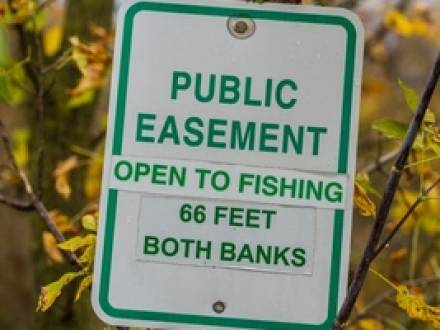Can a Stranger Have a Legal Right to Use My Property?
 As strange as it may seem, complete strangers might have a legal right to be on your property and use it for a specific purpose (such as parking or walking to the beach). This is thanks to a legal instrument called an easement, which is a legal right to use someone’s property for a specific purpose. This may be fine if you know about the easement. But what if your property contains an easement you knew nothing about when you purchased it?
As strange as it may seem, complete strangers might have a legal right to be on your property and use it for a specific purpose (such as parking or walking to the beach). This is thanks to a legal instrument called an easement, which is a legal right to use someone’s property for a specific purpose. This may be fine if you know about the easement. But what if your property contains an easement you knew nothing about when you purchased it?
For example, what if shortly after you move in you discover that mourners are using your property to get to a nearby cemetery? Or that a utility company is going to dig in your yard without compensating you? These are not made-up scenarios; similar things have happened in real life. To avoid this, it is important to know whether there is an easement before you purchase a property and if so, what its terms are. However, if you do not get the full picture before you buy, or if other disputes arise about the easement, an experienced Falls Church, VA property dispute attorney can advise you on your rights.
How Do Easements Work?
An easement is a legal arrangement that allows someone’s private property to be used by someone else for a specific, limited purpose. The entity that benefits from the easement is called the dominant tenant or dominant estate, while the property that has the easement imposed on it is called the servient tenant or servient estate. Easements can be either affirmative or negative. An affirmative easement allows the dominant estate to use the land in a certain way, for example, driving across it or accessing water. A negative easement prevents the servient estate from taking certain actions, for example, blocking a view by building a fence.
Easements must be used according to the terms set out in the document granting the easement. Otherwise, you can take legal action to stop the wrongful use.
What If You Discover an Easement You Do Not Want?
If you are the servient estate and do not want the easement on your land, you may be facing a dispute with the owner of the dominant estate. In this case, you will first want to understand all the details about the easement, including the type of easement you have, its duration, and any restrictions. Next, you can attempt to negotiate a mutually agreeable solution with the dominant estate owner. If all else fails, you may have to turn to a property dispute attorney for litigation.
How Can You Terminate an Easement?
There are some common ways that an easement can be terminated including:
-
Abandonment or prescription: If you act in such a way that shows your intent to terminate the easement, you may later be able to claim the easement was abandoned.
-
Termination date: Check the termination date. If it is near or has passed, the easement will naturally terminate.
-
Recording: If the easement was not properly recorded, you can argue that you did not know about the easement nor did you have any way to know about it, and that it was not valid.
-
Forfeiture: You can argue that the easement puts an excessive burden on the property.
Call a Falls Church, VA Property Dispute Attorney
If you discover an unknown and unwanted easement on your property, you need the legal assistance of an experienced Vienna, VA property dispute attorney. At Salvado Law Offices our skilled team of lawyers is here to protect your property rights when disputes about easements arise. Call our offices at 703-379-9446 for a consultation.









